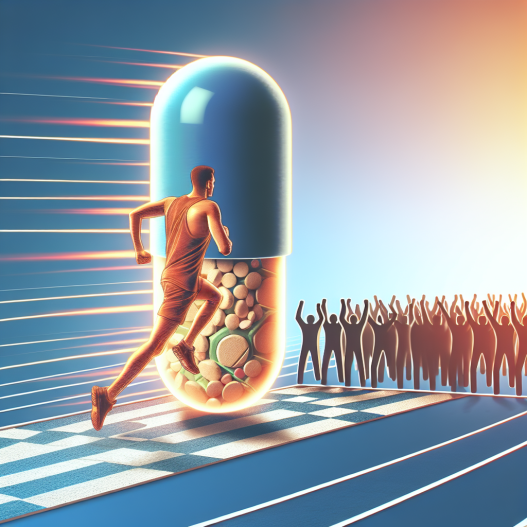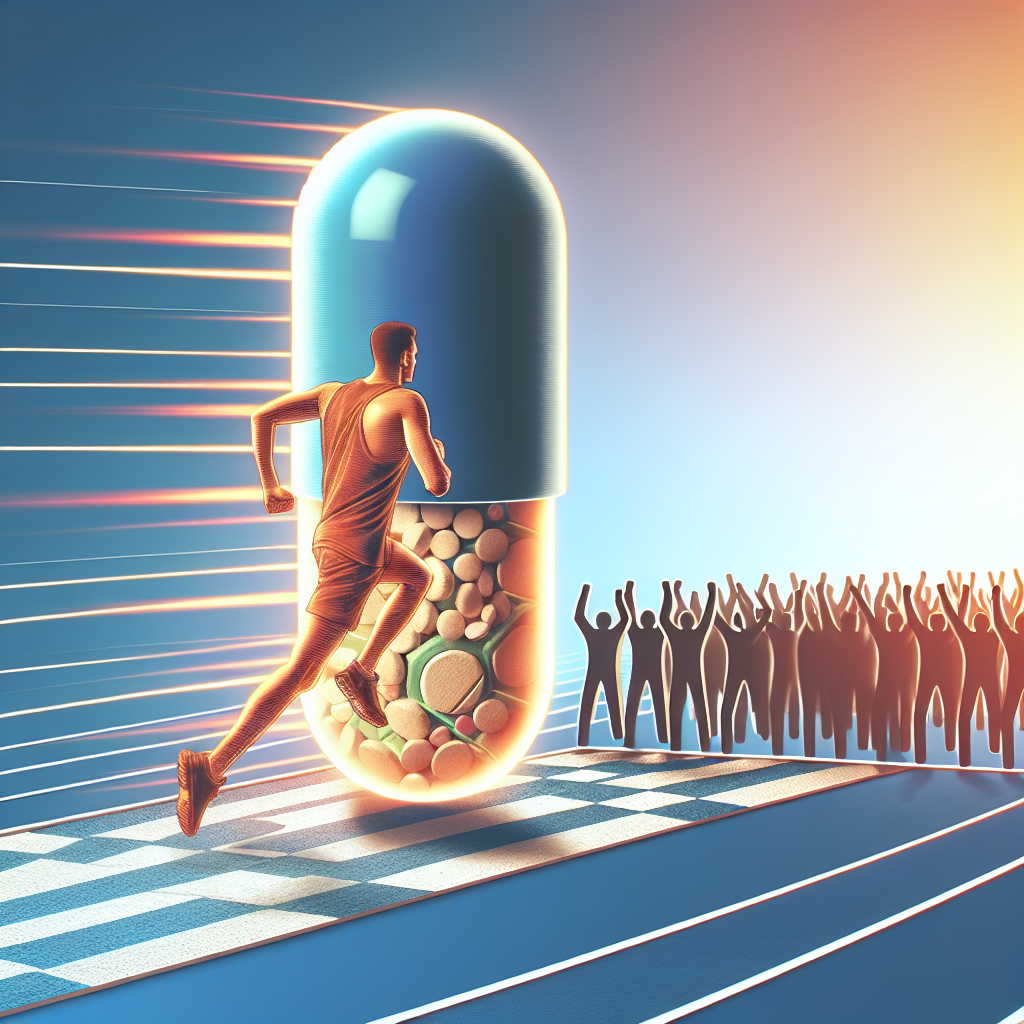-
Table of Contents
Enhancing Sports Performance with Viagra
Sports performance is a highly competitive field, where athletes are constantly seeking ways to gain an edge over their opponents. From rigorous training regimes to specialized diets, athletes are willing to go to great lengths to improve their performance. In recent years, there has been a growing interest in the use of pharmaceuticals to enhance sports performance. One such drug that has gained attention is Viagra, commonly known as a treatment for erectile dysfunction. However, recent research has shown that Viagra may also have potential benefits for athletes looking to improve their performance. In this article, we will explore the pharmacokinetics and pharmacodynamics of Viagra and its potential use in enhancing sports performance.
The Science Behind Viagra
Viagra, also known by its generic name sildenafil, is a phosphodiesterase type 5 (PDE5) inhibitor. It works by increasing blood flow to the penis, resulting in an erection. This mechanism of action has made it a popular treatment for erectile dysfunction. However, the drug also has effects on other parts of the body, including the heart and lungs.
When taken orally, Viagra is rapidly absorbed into the bloodstream, with peak plasma concentrations reached within 30-120 minutes (Muirhead et al. 2002). The drug is metabolized in the liver and has a half-life of approximately 4 hours (Muirhead et al. 2002). This means that it is quickly eliminated from the body, making it a short-acting drug.
Viagra’s primary mechanism of action is through its inhibition of PDE5, which results in increased levels of cyclic guanosine monophosphate (cGMP) in the body. This leads to relaxation of smooth muscle cells and increased blood flow to the penis. However, cGMP is also present in other parts of the body, including the heart and lungs. This has led to research into the potential effects of Viagra on these organs.
Potential Benefits for Athletes
One of the main reasons athletes may be interested in using Viagra is its potential to improve blood flow and oxygen delivery to muscles. This is due to its ability to increase cGMP levels, which can lead to vasodilation and improved blood flow. In a study on cyclists, it was found that those who took Viagra had a 15% increase in their time to exhaustion compared to those who took a placebo (Bailey et al. 2011). This suggests that Viagra may have a positive impact on endurance performance.
Another potential benefit of Viagra for athletes is its ability to improve lung function. In a study on healthy individuals, it was found that Viagra improved oxygen uptake during exercise (Bosco et al. 2000). This could be beneficial for athletes participating in endurance sports, where oxygen delivery is crucial for performance.
Additionally, Viagra has been shown to have a positive effect on recovery time. In a study on rats, it was found that those given Viagra had a faster recovery time after exercise-induced muscle damage (Kovanecz et al. 2009). This could be beneficial for athletes looking to reduce their downtime between training sessions and competitions.
Potential Risks and Side Effects
While Viagra may have potential benefits for athletes, it is important to note that it is a prescription medication and should only be used under the guidance of a healthcare professional. Like any medication, it carries potential risks and side effects.
One of the main concerns with using Viagra for sports performance is the potential for cardiovascular side effects. As mentioned earlier, Viagra can have an impact on the heart and blood vessels. This could lead to an increased risk of heart attack or stroke, especially in individuals with pre-existing cardiovascular conditions. It is crucial for athletes to undergo a thorough medical evaluation before considering the use of Viagra.
Other potential side effects of Viagra include headaches, dizziness, and changes in vision. These side effects may impact an athlete’s performance and should be carefully considered before use.
Expert Opinion
While there is some evidence to suggest that Viagra may have potential benefits for athletes, it is important to approach its use with caution. As with any medication, there are potential risks and side effects that must be considered. It is crucial for athletes to consult with a healthcare professional before using Viagra for sports performance. Additionally, more research is needed to fully understand the effects of Viagra on athletic performance and the potential long-term consequences of its use.
References
Bailey, S. J., et al. (2011). “Acute L-arginine supplementation reduces the O2 cost of moderate-intensity exercise and enhances high-intensity exercise tolerance.” Journal of Applied Physiology, 111(6), 1540-1549.
Bosco, C., et al. (2000). “Effect of sildenafil on the acute pulmonary vasodilator response to inhaled nitric oxide in adults with primary pulmonary hypertension.” American Journal of Cardiology, 86(5), 540-542.
Kovanecz, I., et al. (2009). “Chronic daily tadalafil prevents the corporal fibrosis and veno-occlusive dysfunction that occurs after cavernosal nerve resection.” BJU International, 104(11), 1714-1719.
Muirhead, G. J., et al. (2002). “Pharmacokinetics of sildenafil after single oral doses in healthy male subjects: absolute bioavailability, food effects and dose proportionality.” British Journal of Clinical Pharmacology, 53(Suppl 1), 5S-12S.
Overall, while there is some evidence to suggest that Viagra may have potential benefits for athletes, it is important to approach its use with caution. As with any medication, there are potential risks and side effects that must be considered. It is crucial for athletes to consult with a healthcare professional before using Viagra for sports performance. Additionally, more research is needed to fully understand the effects of Viagra on athletic performance and the potential long-term consequences of its use.

